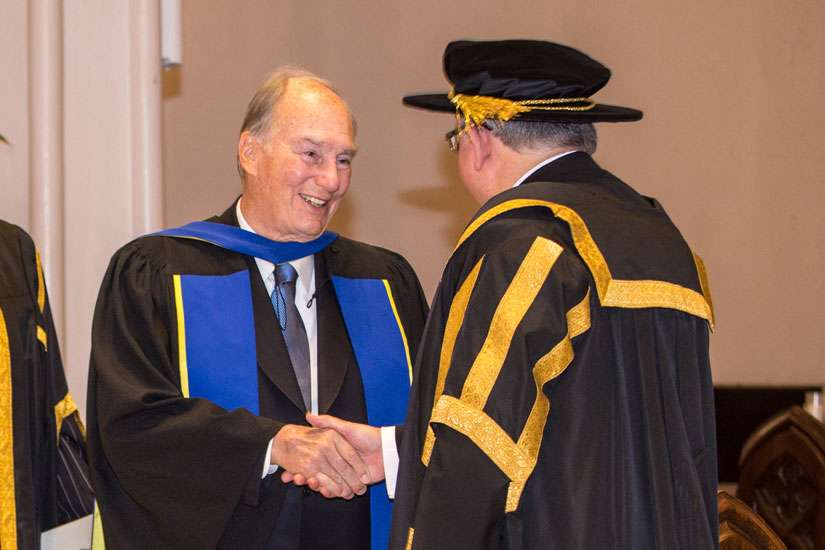In his role as chancellor of the prestigious graduate school, Cardinal Thomas Collins bestowed an honourary doctor of letters in Mediaeval Studies on the spiritual leader of the world’s 15 million Ismaili Muslims.
Collins praised the Aga Khan as a religious voice of reason, peace and humanity.
“This is what you have so consistently done over the years — to bring peace and to bring hope,” Collins said. “Our society is so often turned into rather a cold place by the cold winds of secularism.”
The honourary doctorate highlights a new program at the 87-year-old pontifical institute attached to St. Michael’s College in the University of Toronto. In the last year the institute has initiated a program that concentrates on the three Abrahamic faiths and their interaction in the mediaeval period. Without the contributions of Muslims scholars, the rediscovery of Plato and Aristotle, which led to the philosophical and theological achievements of Thomas Aquinas, would not have been possible.
As an honourary Canadian citizen and founder of Toronto’s Aga Khan Museum, the Aga Khan is well known in Canada, but should be celebrated as “a champion of pluralism, a transcender of borders and barriers and a great, wise and benevolent connector,” said University of St. Michael’s College president David Mulroney.
In our own time the Aga Khan has been “one of our world’s most effective voices for moderation, mutual understanding and acceptance and human advancement,” said institute president Richard Alway.
The audience of about 700 Catholic and Ismaili community members at St. Basil’s Church included former Governor General Adrienne Clarkson and Calgary Mayor Neheed Nenshi.


